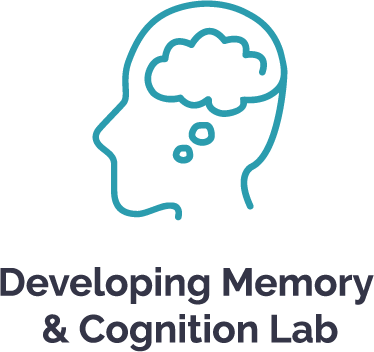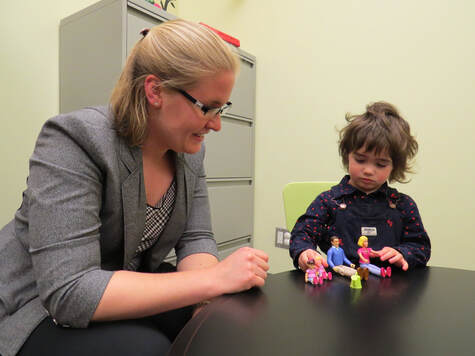The Emergence and Development of Procrastination
Recently, our lab has begun to examine the emergence and development of young children's procrastination behaviour. We are interested in how procrastination tendencies and behaviours emerge and develop in early childhood as well as how procrastination behaviour relates to future thinking and self control. In particular, we view procrastination as a failure of future thinking. Indeed, when an undesirable task is delayed, children are prioritizing their current self but are punishing their future self who will have to eventually face the undesired task.
In our 2023 paper published in Developmental Psychology, we adapted a procrastination questionnaire for parents of preschool-aged children. If you are interested in using the Preschool Procrastination Scale, please see Fuke et al. (2023) or get in touch with Dr. Mahy.
Current research is examining:
(1) the development of valid behavioural tasks that capture young children's procrastination and differences between delay and maladaptive procrastination and its cognitive correlates (Kamber, Maguire, & Mahy, in progress)
(2) relations among attentional difficulties, procrastination, and children's future thinking (Maguire & Mahy, in progress)
(3) the impact of emotional simulation on children's procrastination behaviour (Tehrani & Mahy, in progress)
(4) if parents can distinguish between young children's forgetting, procrastination, and non-compliance (Maguire, Kamber, Tehrani, & Mahy, in progress)
In our 2023 paper published in Developmental Psychology, we adapted a procrastination questionnaire for parents of preschool-aged children. If you are interested in using the Preschool Procrastination Scale, please see Fuke et al. (2023) or get in touch with Dr. Mahy.
Current research is examining:
(1) the development of valid behavioural tasks that capture young children's procrastination and differences between delay and maladaptive procrastination and its cognitive correlates (Kamber, Maguire, & Mahy, in progress)
(2) relations among attentional difficulties, procrastination, and children's future thinking (Maguire & Mahy, in progress)
(3) the impact of emotional simulation on children's procrastination behaviour (Tehrani & Mahy, in progress)
(4) if parents can distinguish between young children's forgetting, procrastination, and non-compliance (Maguire, Kamber, Tehrani, & Mahy, in progress)
Relevant Publications
Mahy, C. E. V., Munakata, Y., & Miyake, A. (in press). Mutual Implications of Procrastination Research in Adults and Children for Theory and Intervention. Nature Reviews Psychology.
Kamber, E., Fuke, T. S. S., Alunni, M., & Mahy, C. E. V. (2024). Procrastination in early childhood: Associations with self-regulation, negative affectivity, and the home environment. Early Childhood Research Quarterly, 66, 75-85. [PDF]
Fuke, T. S. S., Kamber, E., Alunni, M., & Mahy, C. E. V. (2023). The emergence of procrastination behaviour in early childhood: Relations with executive control and future-oriented cognition. Developmental Psychology, 59, 579-593. [PDF]
Kamber, E., Fuke, T. S. S., Alunni, M., & Mahy, C. E. V. (2024). Procrastination in early childhood: Associations with self-regulation, negative affectivity, and the home environment. Early Childhood Research Quarterly, 66, 75-85. [PDF]
Fuke, T. S. S., Kamber, E., Alunni, M., & Mahy, C. E. V. (2023). The emergence of procrastination behaviour in early childhood: Relations with executive control and future-oriented cognition. Developmental Psychology, 59, 579-593. [PDF]


